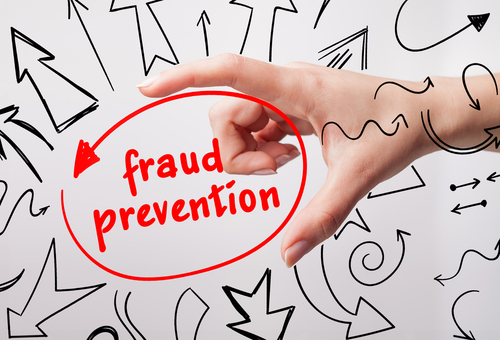Blog
Four Things You Can Do to Protect Your Small Business From Fraud
Is your business susceptible to fraud? Yes! The truth is that nearly everyone and every business has some degree of risk with regard to fraud. Even the most careful individuals and closely managed businesses can fall prey to any one of the numerous deceptive practices that are prevalent in our day-to-day life. For the first 10 years of my career as a business and transactional attorney, there were relatively few occasions when a client would call in response to some fraud within their business that they had recently discovered. Unfortunately, those calls are far more common these days. Whether it is an employee that has embezzled funds from the business or an email scam that caused wired funds to be diverted to the perpetrator's account, these are now relatively common occurrences that everyone should be aware of, plan for, and take steps to try to prevent.
Most small business owners believe they will not be a fraud victim. We all like to think that bad things won't happen to us. Unfortunately, according to the 2018 Report to the Nations on Occupational Fraud and Abuse, published by the Association of Certified Fraud Examiners, small businesses (those with fewer than 100 employees) experienced the greatest degree of fraud. According to the report, median losses by small businesses due to fraud were approximately $200,000.
While implementing a comprehensive fraud prevention plan is a broad topic, here are a few important things that you can do:
Put internal controls in place to minimize the potential for fraud
Nearly half of all frauds committed against small businesses were caused by a lack of internal controls. If possible, separate out tasks related to banking. For example, make sure the employee who prepares a deposit is different from the employee actually making the deposit. Similarly, employees that have authority to write checks should not also have signing authority.
Keep an eye on cash flow
Closely watching the flow of cash into and out of your business is one of the most effective ways to prevent fraud. Although we all want to trust our employees, and often need to rely on them to keep our businesses running smoothing, the sad truth is that the likelihood of internal fraud is just as common among long-term employees as newly hired employees. Of course you need to watch for blatant stealing of cash, but a technique called false invoicing is one particularly tricky way in which an employee can commit fraud. With false invoicing, employees submit invoices in the name of a made up vendor, sometimes with a name similar to a legitimate vendor. Unless you are watching your cash flow and invoices closely, it’s difficult to catch fraudulent invoicing schemes.
Monitor online banking and security settings
In our firm we have a multitude of bank accounts and several individuals that have access to online banking for each. Although we have taken the time to assign each individual the correct security settings, as the banks perform upgrades and changes to their online banking systems, changes can occur without your knowledge. Regularly reviewing each user’s security settings to ensure that only specific employees can perform certain tasks is critical to all business owners.
Train your employees, and consider implementing a tip line
Training your employees to be aware of potential fraudulent activities is one of the best ways to avoid becoming a victim of fraud. You can't possibly see everything or be involved with every aspect of your business's day to day operations. Having a team of well-trained employees that are aware of what to look for and how to prevent fraud is essential. We make an effort to continuously remind our staff of the potential for phony emails that are likely part of a phishing scheme that could expose our network to viruses and/or wire fraud. Lastly, although it may seem unnecessary, consider putting in place an anonymous tip line. According to the 2018 Report to the Nations referenced above, tips were by far the most common initial detection method for frauds covered in the report. Anonymous tip lines can be implemented for $500 per year or less for businesses with fewer than 100 employees. At that cost, an anonymous tip line could easily pay for itself by identifying even one minor fraud incident.
